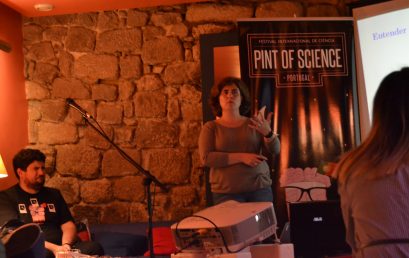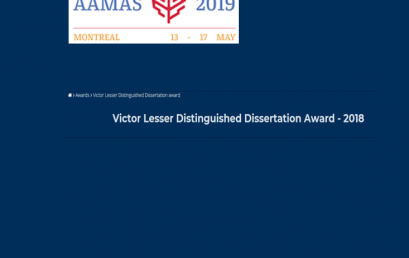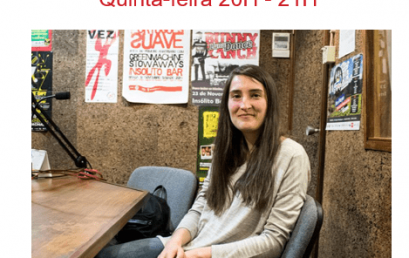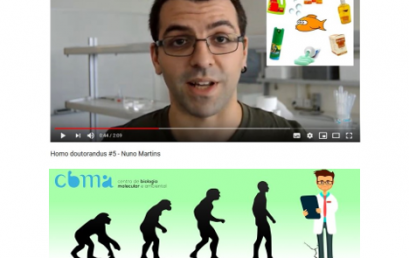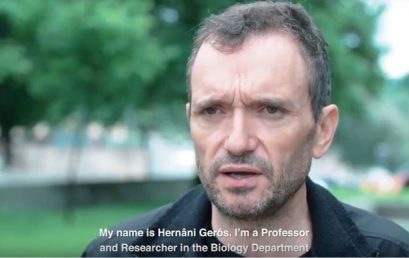CBMA at Pint of Science 2019
CBMA researchers, Andreia Gomes and Inês Sousa, were at Pint of Science 2019.
UM I&D – Isabel Fernandes
What is the impact of global changes on aquatic ecosystems? Will Portugal continue to suffer from extreme events such as drought? Questions that the Isabel Fernandes will talk about at UM I&D radio show.
A History of the Iberian Peninsula revealed by ancient DNA.
In a study published yesterday in the journal Science, a group of 111 population geneticists and archaeologists, among them the Portuguese Pedro Soares from CBMA, charted 8,000 years of genetics in the region.
Homo doutorandus #5
Homo doutorandus is a science communication project where we give a voice to the CBMA PhD students to talk about their PhD project in about 1 minute. In Homo doutorandus #5 we have Nuno Martins!
Best Portuguese thesis of 2017 in the field of limnology
“Impacts of silver nanoparticles in freshwater detrital food-webs in a warming Scenario” was considered the best Portuguese thesis of 2017, presented in Portugal in the field of limnology.
Solutions of plant biology and its applications in agricultural production chains
Plant biology solutions and their application in agricultural production chains are been developed by Hernâni Gerós, researcher at CBMA.
Antimicrobial materials for wound treatment
Biotechnological materials that use nature as a source of inspiration are being developed by Raul Machado, Assistant Researcher at the CBMA. The aim of this technology is to avoid the use of antibiotics and other agents in the treatment of wounds that may be less biocompatible and, thus circumvent any problem to antimicrobial resistance

